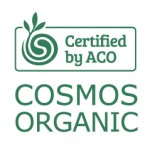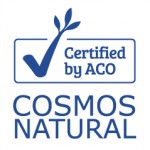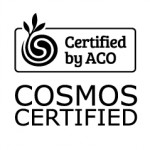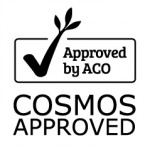Australian Certified Organic Technical Bulletin
April 2018
Reminder for Labelling Requirements for Allowed Inputs
ACO China Certification Program
A review of import conditions for brassicaceous crop seeds for sowing
Fire Ants notification for operators certified to the National Standard and ACOS
Export Certificates Timeframe
Export Certificates post departure
OGA Program will close on 30 June 2018
Introduction to COSMOS (Cosmetics Organic and Natural Standard)
USDA NOP Integrity Database
Certification Standards Links
ACO Service Desk Requests
ACO Non-compliance notification and process of suspension/decertification
Exports to Europe
Certification of Cosmetic Products to the EU Regulation
Annual Inspection of Storage Facilities
Reminder for Labelling Requirements for Allowed Inputs
(ACOS 9.5.3)
The labelling requirements for Allowed Inputs under the Australian Certified Organic Standard 2017 v.1 are applicable from 31/08/2018.
All products approved to be marketed as Allowed Inputs shall include the following details on all packaging bound for retail sale (unless otherwise overridden by other market requirements):
- The name of the product or a description of the material;
- Appropriate reference to registration status (i.e. Registered Product);
- Relevant logo;
- Name and address and/or registered mark of the certified operator or owner of the product and/or label as required by law;
- Clear reference to any restrictions on the use of the product;
- Recommended application methods and use rates of the product. *NB: Onus is on the operator to ensure compliance to other market requirements
There may be no reference or indication that the entire product is “certified organic” or “organic” in the product name or on the label.
In instances where individual ingredients are certified organic they may be indicated as such on the label so long as claims are not misleading.
A copy of all labels must be provided and approved by ACO. Label approvals must be kept on file by the operator.
Failure to maintain compliant labelling and receive written confirmation from ACO as to the acceptability of such labels may result in removal from the marketplace.
Please contact the ACO office for any further information.
ACO China Certification Program
ACO is the only certification body in Australasia that offers certification to the Chinese regulations with a Chinese Liaison Manager and
approved auditor based in Australia. The information about the Chinese certification program can be found here
http://aco.net.au/Pages/Operators/ChinaStandards.aspx
A review of import conditions for brassicaceous crop seeds for sowing
The Australian Department of Agriculture and Water Resources are conducting a review of import conditions for brassicaceous
crop seed for sowing. This may impact seed suppliers and producers. For further details and making submission please visit:
http://www.agriculture.gov.au/biosecurity/risk-analysis/plant/brassicaceous-crop-seeds
There have been 2 new fungal quarantine pests identified Colletotrichum higginsianum and Fusarium oxysporum f. Sp. Raphani.
The draft proposes a mandatory fungicidal treatment (off or on shore) for seeds of Brassica oleracea (eg: cabbage, cauliflower),
Brassica rapa (eg: bok choy, turnip), Eruca vesicaria (eg: rocket) and Raphanus sativus (eg: radish) (Full list on
Table 1 page 8 of report).
This may affect the following clients:
- Sprout producers who require certified organic seed (no fungicidal treatment is permitted for
certified sprout production)
- Any certified client importing seeds of crops listed in Table 1 of the draft (page 8)
- NOP/China certified producers in Australia who are importing seed for sowing as seed cannot be treated
Any ACO certified client who believes they will be adversely affected by the proposed changes to the import conditions,
please notify the office on info@aco.net.au with “Proposed Changes will Affect me” in the Subject Line please.
Please note that the notice from Department of Agriculture can be accessed from here:
http://www.agriculture.gov.au/biosecurity/risk-analysis/plant
Fire Ants notification for operators certified to the National Standard and ACOS
Further to the notification issued by ACO on 22 January 2018, below is a reminder about the outcomes for certified
organic producers certified to the Australian Certified Organic Standard (ACOS) and the National Standard for Organic
& Bio dynamic Produce, in the event their property(s) is / are affected by the mandatory Red Fire Ant baiting program.
In the event of Red Fire Ant Baiting occurring on a certified property, please contact the ACO office with the following information:
- Date of baiting
- Copy of the notification of intent to bait (if any)
- Map of the affected area
- Details of any crop grown
Land under fallow will not be affected.
Generally, any crop growing on certified organic land at the time of baiting, will lose its certified organic
status for that growing season. The certified land, however may be unaffected and remain certified.
All notifications will be assessed on a case by case basis.
Please note if you are certified to standards other than the ACOS and National Standard, the fire ant treatment will result in loss of certification.
Export Certificates Timeframe
It is important that exporters provide correct and adequate details for obtaining Organic Produce Certificates (OGCs), Transaction Certificates (TCs),
and Certificate of Registration (TRACES for EU). If adequate details are not provided, the delay in issuing the certificate may affect export of your organic produce.
The cut off time for OGC submissions is 2pm Monday to Friday. Submitting your certificate before this time may not guarantee the same day approval.
Therefore, it is important to allow sufficient time for OGCs while planning export of organic products.
Export Certificates post departure
Organic Produce Certificates will not be signed after shipments leave Australia unless there is an acceptance letter from a
government authority of the importing country authorising post departure OGC.
OGA Program will close on 30 June 2018
After 30 June 2018 ACO will no longer offer the OGA program. OGA certificates have a 30 June 2018 expiry date. Operators may
apply for the ACO standard certification program. Please contact the ACO office if you would like to discuss ongoing
certification under the standard program. If you have not confirmed your ongoing certification, the OGA certification will
not be valid after 30 June 2018.
Introduction to COSMOS (Cosmetics Organic and Natural Standard)
Cosmetic companies and raw material suppliers in the region now have access to a global cosmetics certification scheme, the
COSMOS-Standard, which is on track to be the most widely used organic and natural cosmetics standard globally.
ACO Certification Ltd is one of only ten authorised certification bodies worldwide who can provide you with
certification to the COSMOS-Standard and is the only authorised certifier based in Australasia. Certification to the
COSMOS-Standard can provide you global market access for your organic and natural cosmetic products and raw materials.
The core of the COSMOS-Standard is to achieve the following key objectives:
- promote the use of products from organic agriculture, and respecting biodiversity
- using natural resources responsibly, and respecting the environment
- using processing and manufacturing that is clean and respectful of human health and the environment
- integrating and developing the concept of "Green Chemistry"
Cosmetic manufacturers, handlers and brand owners of organic or natural cosmetic products and ingredients all have access to
COSMOS-Standard certification and your products can be labelled with one of ACO’s well recognised certification logos.

- Used for finished cosmetic products
- Annual onsite COSMOS audit required
- At least 20% of the total product (including salt and water) must be organic
- At least 10% of the total product (including salt and water) must be organic for products that are rinse-off, non-emulsified aqueous, or >80% minerals
- At least 95% of the physically processed agro-ingredients must be organic
- Physically processed agro ingredients listed in Appendix VI of the COSMOS Standard must be organic
- Chemically processed agro-ingredients listed in Appendix VII of the COSMOS Standard must be organic

- Used for finished cosmetic products
- Annual onsite COSMOS audit required
- There is no requirement to use a minimum level of organic ingredients
- Ingredients used must be assessed to ensure they comply with the COSMOS-Standard definition of natural origin
- The following are of natural origin: water, minerals and ingredients of mineral origin, physically processed agro-ingredients,
chemically processed agro-ingredients (and parts thereof) derived wholly from the above
- Other ingredients used are limited to the few that are currently permitted in the COSMOS-Standard

- Used for finished cosmetic products
- Annual onsite COSMOS audit required
- For physically processed agro-ingredients and chemically processed-agro ingredients
- These cosmetic raw materials have a percentage of organic content

- Used for finished cosmetic products
- No onsite audit required
- For physically processed agro-ingredients and chemically processed-agro ingredients
- These raw materials have no organic content
- The raw material/ingredient is submitted to an authorised certification body to review for compliance to the COSMOS-Standard
USDA NOP Integrity Database
USDA publish a database of all operators certified to the USDA NOP regulations. It contains a list of more than 40,000 operators including products certified,
certification status, and the contact details of certified operators. This list can be accessed at:
https://organic.ams.usda.gov/Integrity/
Certification Standards Links
Australian Certified Organic Standard 2017 V.1<
https://austorganic.com/industry/certification-and-standards/standards/acos/
National Standard
http://www.agriculture.gov.au/export/controlled-goods/organic-bio-dynamic/national-standard
USDA NOP Standard
https://www.ecfr.gov/cgi-bin/text-idx?c=ecfr&sid=3f34f4c22f9aa8e6d9864cc2683cea02&tpl=/ecfrbrowse/Title07/7cfr205_main_02.tpl
JAS Technical Criteria
http://aco.net.au/Pages/Operators/JapanStandards.aspx
IFOAM Norms
https://www.ifoam.bio/sites/default/files/ifoam_norms_version_july_2014.pdf
Certified operators are required to have access to standards relevant to their certification.
ACO Service Desk Requests
One of the main reasons there is a delay in obtaining approvals for new products, labels, or ingredients is insufficient information
including relevant MSDS, GM Free declarations, Product Information Forms (PIFs). When requesting a service through the service desk,
please ensure you provide sufficient information for assessment and allow sufficient time for ACO to assess and approve recipes/labels.
In order to prevent delays in assessing your service desk requests, when submitting products and labels for assessment to the ACO
service desk, the following should be considered.
For new organic products to be added to your certification from a certified operator, the product is required to be accompanied
with its current organic compliance certificate from the supplier, specifically noting the desired product. If the product is
to be used in a recipe for a new formulation, the supplied certificate must note its organic percentage. Products noted as
organic and not 100% organic will automatically be set to 95% certified organic as this is the minimum requirement for a certified organic product.
For new label assessments, the appropriate logo with your certification number is required. Products which are imported or
using imported ingredients are required to use the “ACO certified organic” logo in order to comply with the country of origin
labelling requirements.
Labels for products with multiple ingredients should be accompanied by the approved recipe noting the list of approved
ingredients in order for the descending order and noted organic ingredients to be confirmed.
Labels for products certified to international organic standards may have specific labelling requirements from the
importing country. Please contact the ACO office for more information.
Please note you must have prior approval for labels with ACO and other relevant certification claims and/or logo.
ACO Non-compliance notification and process of suspension/decertification
Operators are required to respond to Non-compliance CARs within the timeframe specified in the Non-compliance letter. If ACO does not
receive a response to non-compliances within the timeframes set out in the written notification, ACO (in line with its own
regulatory requirements) may need to commence the process of suspension.
The process of suspension may result in decertification i.e. Termination of licence.
Please note that due to ACO’s accreditation obligations, ACO must notify other certification bodies and other stakeholders of
suspensions and decertifications as they occur.
Also note that operators have the right to appeal certification decisions made by ACO in relation to their own operation.
Exports to Europe
There are some specific requirements for exporting to Europe, depending upon the product being exported. We have outlined
these requirements and information on the use of Euro leaf label in the following link:
http://aco.net.au/Pages/Operators/EuropeStandards.aspx
The requirements also change based on the country of production and export. We advise you to contact the ACO office
for information regarding market access into Europe.
ACO is the only certification body that can provide market access for Australian livestock products into Europe.
Certification of Cosmetic Products to the EU Regulation
A reminder about some important changes to the organic certification of non-food products to the EU Organic Regulation. Non-food products
(such as essential oils) can no longer be certified organic under the EU Organic Regulation as these regulations now only cover food products.
This notification was initially sent in January 2017.
What this means for you:
- Non-food products (essential oils etc.) will no longer be certified organic to the “EU” on your certificates of compliance;
- Any exports of non-food products to the European Union will have to go on a transaction certificate stating compliance with the
Australian Certified Organic Standard (ACOS) rather than the EU Regulation;
- Labels and product approvals for non-food products given to the EU Regulations are no longer valid;
- You must cease using the EU logo on any product labelling, marketing materials or otherwise for any non-food products.
If you believe your products can be classified as food products (such as natural flavours or similar) you may have these products certified
organic under the EU Regulation if you are able to supply documentation to this effect.
Please contact the ACO office for any further clarification.
Annual Inspection of Storage Facilities
If you store bulk raw materials/ingredients in any offsite storage facility, please be aware that annual inspections will be required.
Handling procedures, pest control and facility layout need to be submitted to ACO for assessment prior to audit. Please contact the
office for further information and fee schedule.